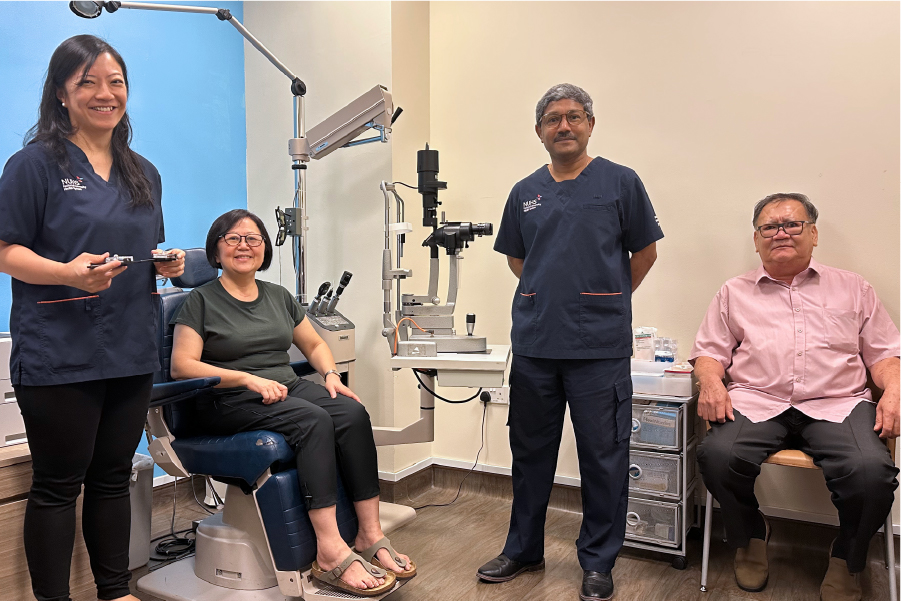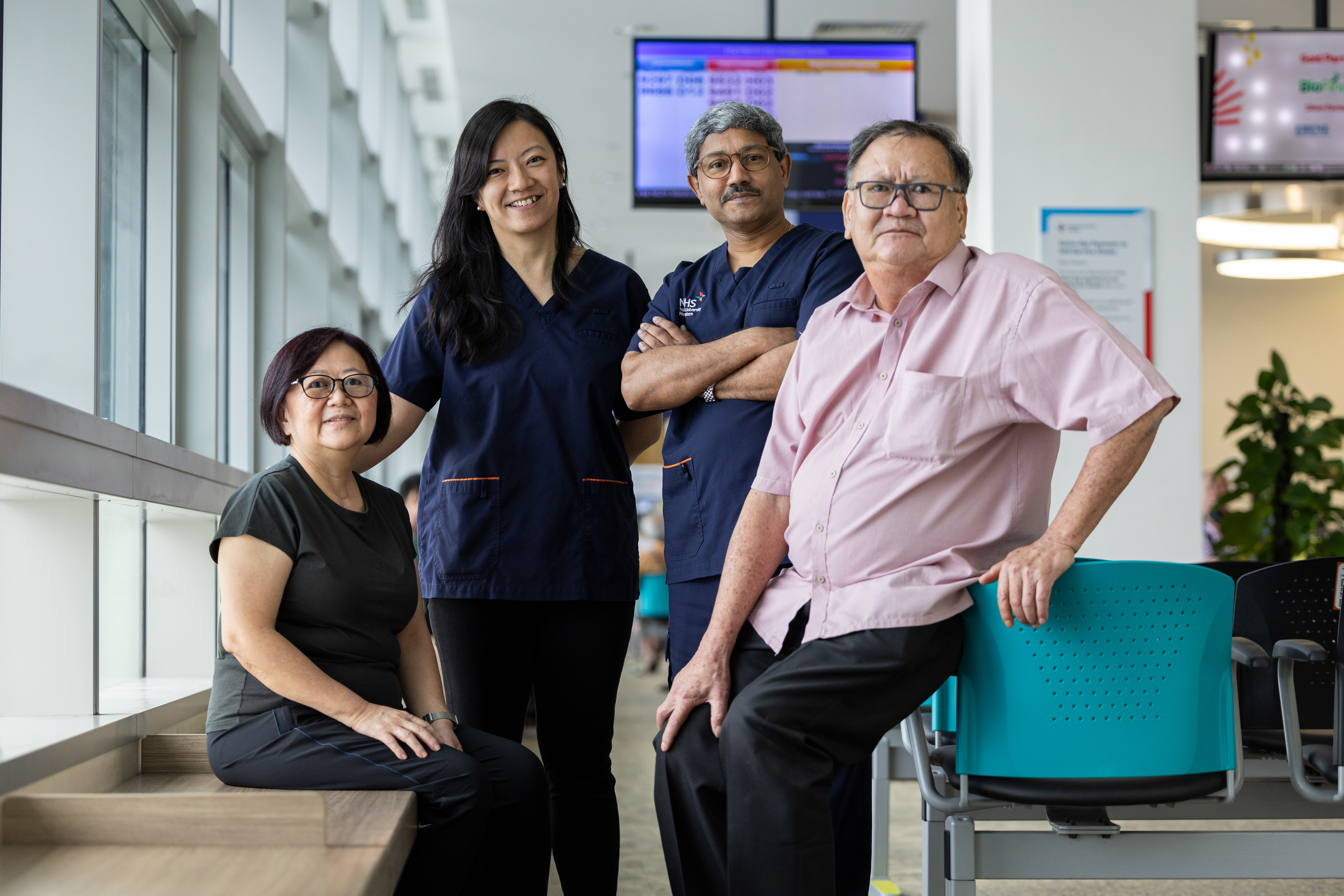NUH doctors provide specialised diagnosis and treatment for
thyroid eye disease, a rare and complex autoimmune condition
that affects vision and eye structure.
Issue 8 | March 2025

 Subscribe and ensure you don't miss the next issue!
Subscribe and ensure you don't miss the next issue!
Madam Goh Sock Cheng knew something was wrong when familiar surroundings started to look unfamiliar. Crowded spaces became disorienting as she struggled to gauge depth, and in brightly lit areas like shopping malls, her vision turned into a blur of glare and distortion. Words on her computer screen no longer appeared sharp, and to make sense of what she was seeing, she sometimes resorted to using just one eye. At the same time, her eyes appeared swollen — leaving her perplexed as to why her vision had changed so drastically.
“I forgot what 3D looked like after a while,” recalls Mdm Goh, a 62-year-old palliative nurse. “It was not the usual way of looking at things anymore.”
The cause of her symptoms was thyroid eye disease (TED), a rare autoimmune condition in which inflammation of the eye muscles and fatty tissue behind the eyes pushes them forward, leading to misalignment. This can lead to double vision, swelling, and in severe cases, vision loss. Despite its name, TED does not always coincide with thyroid disease, which can make diagnosis particularly challenging. In some cases, it is linked to other autoimmune disorders such as systemic lupus erythematosus, Sjögren’s syndrome, vitiligo and Graves’ autoimmune hyperthyroidism.
Expert care for a complex condition
TED affects approximately 19 out of 100,000 people worldwide every year. In Singapore, TED has an annual incidence of between 30 and 50 cases per 100,000 people. At the National University Hospital (NUH), a dedicated TED clinic manages around 75 newly diagnosed and referral cases annually, with patients from Singapore and across Southeast Asia. The condition affects individuals across all age groups, though it is more commonly seen in young and middle-aged women.
“About 30 per cent of TED patients do not have thyroid disease at all,” says Adjunct Associate Professor Gangadhara Sundar, Senior Consultant, Department of Ophthalmology, NUH. “That’s one of the reasons why TED is frequently misdiagnosed as allergic conjunctivitis or dry eyes. Not everyone presents with obvious redness, particularly among Asian patients with darker skin tones, which makes detection even trickier and thus often delaying diagnosis and early treatment, which aids better outcomes.”
Mdm Goh initially suspected her worsening vision was due to outdated spectacles, but a new prescription did little to help. Seeking answers, she visited an eye specialist, who suspected TED and referred her to NUH. Following a thorough evaluation, she underwent two surgeries at NUH to correct her misaligned vision.

Source: The Straits Times Online © SPH Media Limited. Permission required for reproduction.
Early-stage TED is typically managed with artificial tear drops to alleviate dryness. A clinically significant and active inflammatory disease, it requires proactive early aggressive medical management with corticosteroids or immunomodulatory drugs. In advanced cases, surgical intervention is necessary. Depending on the severity, procedures may include orbital decompression to create more space behind the eye, eye muscle surgery to realign vision, or eyelid surgery to restore function and appearance.
“The key is early diagnosis and appropriate intervention,” says Adj A/Prof Sundar. “When TED progresses unchecked, it can lead to irreversible vision damage.”
Managing TED requires a highly coordinated, multidisciplinary approach. At NUH, ophthalmologists work closely with paediatric and adult endocrinologists, immunologists, radiation oncologists, nuclear medicine specialists and outpatient infusion services. For more complex conditions, surgical endocrinologists complement medical endocrinologists in managing refractory hyperthyroidism, particularly when patients experience significant side effects from conventional antithyroid drugs. This comprehensive approach makes NUH a unique centre for TED care, and as Adj A/Prof Sundar puts it, “It takes a village to treat complex TED.”
NUH’s TED medical team is, to date, the only non-European member of the prestigious European Group of Graves Orbitopathy (EUGOGO), a distinction led by its ophthalmology and endocrinology teams.
Like this article? Simply subscribe to make sure you don't miss the next issue of EnvisioningHealth!





















